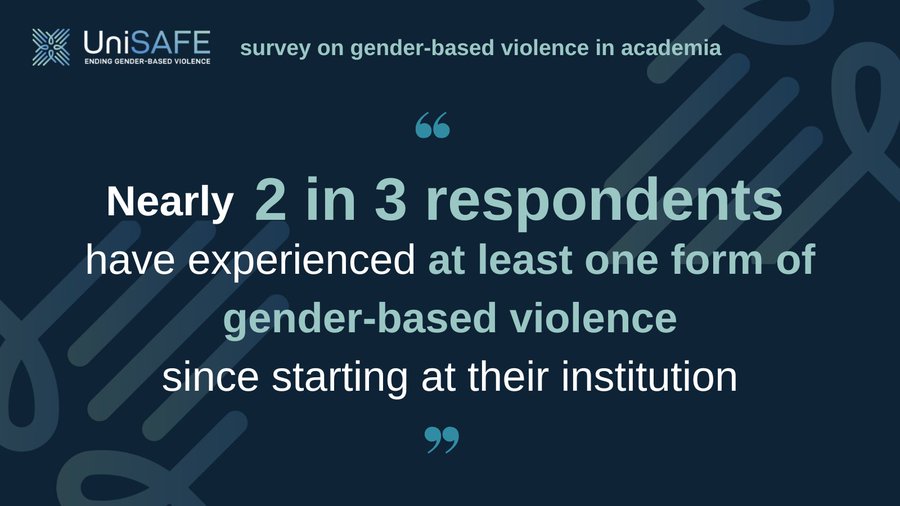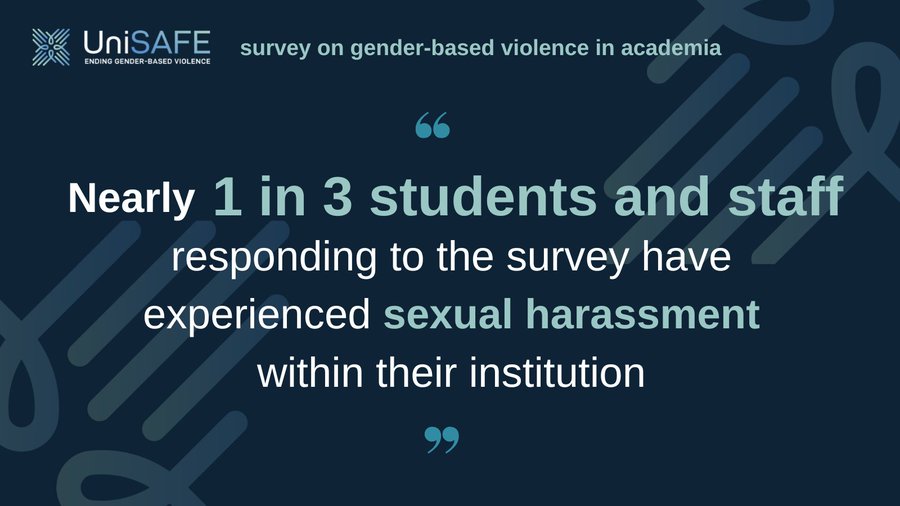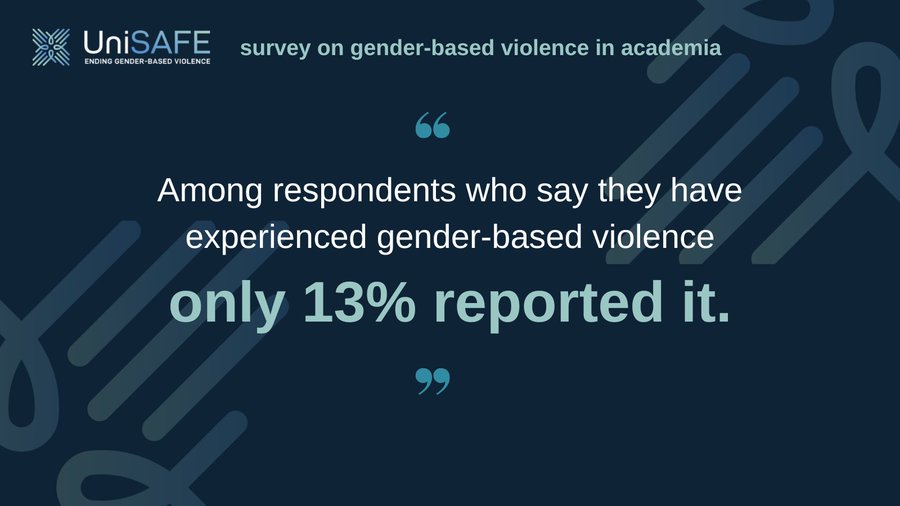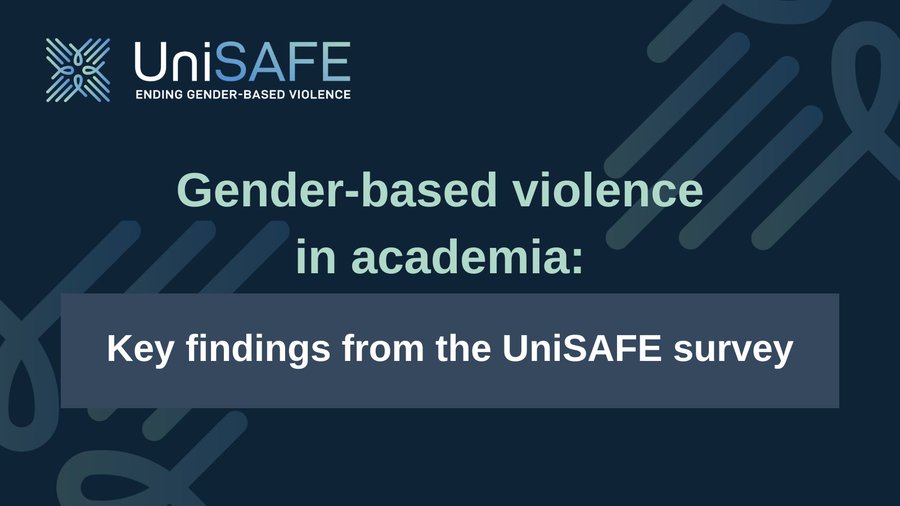From January to May 2022, staff and students from 46 research organisations and universities in Europe participated in the UniSAFE survey addressing gender-based violence in academia. It is the largest survey conducted so far in the European Research Area, with over 42,000 responses.
A comprehensive understanding of gender-based violence
A unique feature of this survey is its holistic approach to investigating gender-based violence. The survey focused on capturing gendered experiences of violence, whether physical, sexual, psychological, or economic, – and online forms of gender-based violence. The survey also looked into intersections with respondents’ individual situation, such as their sexual orientation, age, ethnic minority status, disability, and international mobility among others. The consequences of such experiences were investigated for respondents’ well-being, career and studies.

Two in three respondents have experienced gender-based violence
Overall, results show that 62% of the survey respondents have experienced at least one form of gender-based violence since they started working or studying at their institution.
Women (66%) and non-binary people (74%) were more likely than men to experience all forms of gender-based violence, except for physical violence which more non-binary people and men indicated.
Moreover, respondents who identify as LGBQ+ (68%), who reported a disability or chronic illness (72%), and those belonging to an ethnic minority group (69%) were more likely to have experienced at least one incident of gender-based violence, compared to those who do not identify with these characteristics.

One in three respondents have experienced sexual harassment
Psychological violence is reported as the most prevalent form of violence (57%). Moreover, almost one in three students and staff say they have experienced sexual harassment within their institution (31%), whereas 6% of respondents have experienced physical violence, and 3% sexual violence. One in ten respondents reported that their work or studies have been harmed by economic violence.

Low reporting of gender-based violence incidents
Among respondents who had experienced gender-based violence, only 13% reported it. Almost half of the victims (47%) explained that they felt uncertain whether the behaviour was serious enough to be disclosed. Another frequent reason indicated by 31% of the victims is that at the time of the incident they did not identify the behaviour as an act of violence.
Download the full report: https://unisafe-gbv.eu/wp-content/uploads/2022/11/UniSAFE-survey_prevalence-results_2022.pdf







